Submitted by Mary Napoli and Angela M. Wiseman, Co-chairs, Early Career Award Committee In our rapidly evolving professional landscape, we continue to advance our collective body of research through the connections forged through CLA. It is this dynamic cycle of research combined with our networking opportunities that informs new directions and possibilities. With this in mind, we want to celebrate the contributions of our CLA Early Career Award Recipients from 2017 to the present. As you will read, they have continued to impact the field with their innovative and timely scholarship. In this blog post, we share their responses to open-ended questions that highlight their recent contributions to children’s literature and future projects on the horizon. They were also invited to reflect on how readers and educators will leverage their research in actionable and transformative ways. Finally, everyone was asked to share a photo of something that matters to them. 2023 CLA Early Career Award RecipientJOSH COLEMAN
2019 CLA Early Career Award RecipientNOREEN NASEEM RODRIGUEZ
2017 CLA Early Career Award Recipient
ANGIE ZAPATA
Mary Napoli is the former co-chair of the 2023 Early Career Award Committee. She is an associate professor of education and reading at Penn State Harrisburg. Angela Wiseman is a former CLA Board Member and co-chair of the 2023 Early Career Award Committee. She is an associate professor of literacy education at North Carolina State University. By Grace EnriquezHow might you help to advance the field of children’s literature? The Children’s Literature Assembly Research Award can support your projects and inquiries by providing a grant of $1,000 for original research addressing significant questions related to the field of children's literature. No longer is the power of a children’s book relegated to the realms of libraries, classrooms, and home. The field of children’s and young literature has burgeoned over the past few decades, with everyone from celebrities and professional athletes to politicians and corporations weighing in on the creation and use of children’s and young adult books. Additionally, the field has recognized the importance of all children seeing their lives, experiences, languages, and communities reflected and celebrated in books. These shifts have ushered in new considerations and challenges, as much as it has strengthened the field’s capacity to inspire hope, creativity, and human connection. To illustrate how the award can support our work with children’s literature, I gathered reflections from some past CLA Award recipients. Supporting Inquiry Award recipients have used the award grant to investigate these possibilities. Dr. Josh Coleman (2023 CLA Award recipient) is chronicling how ELA teachers are resisting book-banning legislation in their local contexts—namely their classrooms, schools, and communities. Dr. Emmaline Eliis (2022 CLA Award recipient) received the award as a doctoral student studying how print salience impacts classroom discussion. Dr. Christian M. Hines (2022 CLA Award recipient) and Dr. Eun Young Yeum (2021 CLA Award recipient) were also doctoral students when they received their respective awards, with each exploring the use of book clubs and graphic texts in different student and learning contexts. Ten years ago, the award enabled me (2013 CLA Award recipient) to study how teachers negotiated their use of children's literature and social justice teaching amid the multi-state adoption of the Common Core State Standards. Supporting the Knowledge-Building and Information-Sharing With the support of the award, recipients have also extended the findings of their projects to share with broader audiences. Dr. Ellis stated, “The CLA Research Award was a crucial support for the completion of my doctoral dissertation study. As a doctoral student, the award committee's belief in my research was very meaningful to me." Dr. Coleman collaborated with doctoral student Petra Lange to write a forthcoming article intended to support educators teaching in restrictive legislative contexts to resist education policy that removes children’s literature from classrooms and libraries. He is also completing a book proposal that expands upon that article. “My sincere hope is that this work will provide teachers with actionable strategies for challenging book bans and censorship in their local contexts,” Dr. Coleman reflected. Supporting Communities Perhaps most importantly, the award has also provided recipients with opportunities to support the communities with whom they work. “With the funds provided by the award, I was able to purchase high-quality picturebooks for the preschool teachers participating in my study, all of whom worked in economically disadvantaged schools,” explained Dr. Ellis. Likewise, Dr. Hines shared, “I am exceptionally grateful for the CLA Research Award. Funding from this award made it possible for my students to have access to books and resources to enhance their learning experience. This award allowed me the opportunity to co-create a space with students where they could engage in discussion and activities centered on learning with comics and developing their critical literacies." Dr. Caitlin Ryan (2020 CLA Award recipient) reflected, “Receiving the CLA Research Award was so helpful to the ongoing work Drs. Jill Hermann-Wilmarth, Craig Young, Mikkaka Overstreet and I were doing with our Reading the K-8 Rainbow Book Club project. It funded LGBTQ-inclusive books for our participants who had given us so much of their time and effort. We felt supported, they felt supported, and their students got new books! Having these materials, in turn, helped give us more to talk about and learn from during our Book Club sessions.” Dr. Coleman echoed these sentiments as they pertain to his research: “I am so grateful to the CLA for their support, and with it, I will champion intellectual freedom for teachers and students in every classroom and library across the United States.” So, what lines of inquiry and projects might you want to pursue to explore the power of children’s literature in our schools and communities? Up to two grants may be awarded if funding is available, and projects may engage using any research method or approach. For the application and more information, see the Children’s Literature Assembly Award page on the CLA Website. Grace Enriquez is a professor of Language and Literature at Lesley University, past chair of the CLA Research Committee, and a 2013 recipient of the CLA Research Award. Announcing the 2024 Bonnie Campbell Hill National Literacy Leader Award Call for Applications3/18/2024
Mary Ellen Oslick on behalf for the 2024 Bonnie Campbell Hill National Literacy Leader Award Committee We're excited to invite our NCTE member-leaders who are Classroom Teachers or Literacy Coaches or Teacher Educators to apply for the 2024 Bonnie Campbell Hill National Literacy Leader Award, with funding of $2,500, plus a $150 Heinemann grant. In the realm of literacy education, there are champions who go beyond the ordinary, imparting knowledge and igniting a love for learning. The Bonnie Campbell Hill National Literacy Leader Award celebrates excellence in literacy education as it makes a lasting impact on students' lives and the professional development of other educators, while honoring and maintaining the literacy legacy of Dr. Bonnie Campbell Hill. It recognizes two literacy leaders annually and is generously funded by Dr. Hill's family. Why Apply for the Bonnie Campbell Hill National Teacher Award?
Your proposed plan could focus on attending a workshop, class, or conference with colleagues (e.g., NCTE). As part of your work as a literacy leader, you could design classes, workshops, or literacy-focused events. Your team of colleagues might appreciate a professional book study. Be creative as you plan your proposal but please be mindful of the award requirements as you prepare your application. The professional development plan should address key elements that are listed in the rubric, outlining why you would be a strong candidate for these monies and your vision for how this support would allow you to improve and enhance teaching and learning for students and/or teachers. Submission of all application materials is required no later than August 10, 2024. The award application is available at the Bonnie Campbell Hill Literacy Leader Award page on the CLA Website. If you're unsure whether you and your ideas are award-worthy, please see the prior BCH Award recipients and learn about their proposals.
Mary Ellen Oslick is the chair of the Bonnie Campbell Hill National Literacy Award Committee and associate professor at Stetson University. BY XENIA HADJIOANNOU, LAUREN LIANG & LIZ THACKERAY NELSON Thank you to the Outgoing CLA Board Members
Term: January 1, 2020 - December 31, 2021Congratulations to the Newly Elected CLA Board Members
Term: January 1, 2022 - December 31, 2024
Planting Seeds for Professional Involvement with Bonnie Campbell Hill BY KATHRYN WILL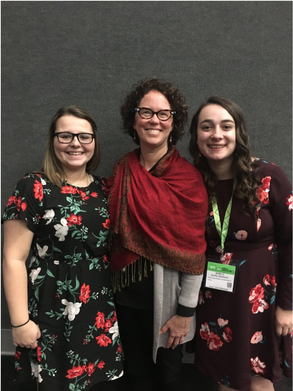 2018 NCTE Annual Convention, Houston 2018 NCTE Annual Convention, Houston Winning the 2018 Bonnie Campbell Hill National Literacy Leader Award for my clinical work with preservice teachers in our local schools allowed me to support the attendance of two university students, Emily and Allicia, at the 2018 NCTE conference in Houston. They were astounded by the warm welcome they received at the CLA breakfast that year, the sessions they attended, and of course the free books signed by authors. To say they were gobsmacked would be accurate. Upon our return from the conference, they shared their experience in a student gathering on campus with others where it was well received and created a buzz in the teacher education program for quite a time afterwards. They graduated in the Spring of 2019, accepting their first teaching positions in nearby schools. Because of the positive experience they had at the 2018 conference, they attended NCTE 2019 in Baltimore as seasoned conference attendees, focusing in on their current classroom needs and of course gathering books for their classroom libraries. After starting a YA book club in the summer of 2019, we continued to meet together virtually throughout the pandemic--sometimes for our book club that grew out of the initial NCTE experience, and other times to navigate classroom or learner challenges. When we met a few weeks ago, I asked them about the initial experience of attending NCTE with me. Emily commented that the experience opened her eyes to the importance of making connections within the profession at a national level. Allicia added that she never would have considered going to something like NCTE if she had not gone with me. It made her dream bigger as a teacher and as a person. They both agreed they will attend again. I am so grateful that winning this award allowed me to plant and nurture the seeds of professional involvement for these teachers in the early stages of their careers. I hope there are opportunities for me to continue this in the future with other preservice teachers. Catching Up with Quintin: A Bonnie Campbell Hill Literacy Leader Award Update BY QUINTIN BOSTIC 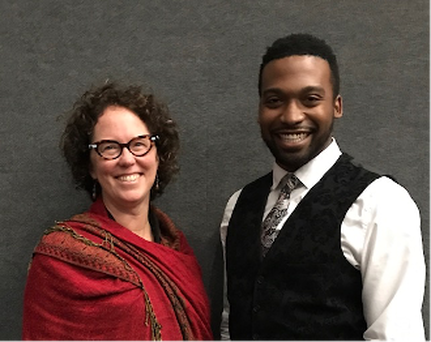 Kathryn Will (left) & Quintin Bostic (right) Kathryn Will (left) & Quintin Bostic (right) When he won the award in 2018, Quintin was preparing to teach his first course in elementary writing instruction for undergraduate preservice teachers. Although his time in the Ph.D. program is coming to an end, the doors to opportunities are just beginning to open. Shortly after receiving the Bonnie Campbell Hill Literacy Leader Award, Quintin began to implement his PLC series. The 3-day series supported teacher trainers and teachers in using various strategies to have critical conversations with students through picture books in their classrooms. The professional development program addressed topics like #BlackLivesMatter, LGBTQIA+ families, multilingualism, varying abilities, and more. Attendees of the professional development supported students from preschool to third grade in an inner-city school district in Atlanta, Georgia. A major highlight from the project was that because it was so well received, the project was further funded through a local agency for the continued support of teachers in the local area. Through the Bonnie Campbell Hill Literacy Leader Award, not only was Quintin able to implement the PLC series, but he was also able to attend the annual convention of the National Council of Teachers of English (NCTE) in Houston, Texas in 2018, attend the Children’s Literature Assembly’s breakfast, and attend the all-attendee event that featured author Sharon Draper. Because of the award, Quintin has gained a platform that has helped him to continue to advance in his academic career.  Quintin Bostic Quintin Bostic Quintin is currently wrapping up his Ph.D. in Early Childhood and Elementary Education at Georgia State University. His research focuses on how race, racism, and power are communicated through the text and visual imagery in children’s picturebooks. Additionally, in 2020, Quintin was named co-chair of the National Association for Professional Development Schools (NAPDS) Anti-Racism Committee. The association – which provides professional development, advocacy, and support for school-university partnerships – first established the Anti-Racism Committee in response to racial violence in 2020. As co-chair, Bostic will work to foster a culture of equity and inclusion within the association, and in the communities it supports; create and implement anti-racist policies, practices, and systems; and recommend and implement tools and approaches for continued reflection and progress. “Our goal is to address racism by providing teachers and community partners with the necessary resources to do so,” Bostic said. “These resources vary, ranging from trainings to resources, that can help challenge and overcome racist ideologies that are embedded throughout society.” He also just started a new career with Teaching Lab, in which is serves as a Partnerships Manager. Quintin is beyond thankful to Bonnie Campbell Hill, her family, the Children’s Literature Assembly, and everyone who makes this award possible. “There are so many people, like me, who would have never had the opportunity to have so many experiences without the support, love and care of people like the Bonnie Campbell Hill Award family. I am so appreciative, and I look forward to seeing what amazing things will come out of this award in the future.” Kathryn Will is an Assistant Professor of Literacy at the University of Maine Farmington (@KWsLitCrew). She is passionate about sharing the power of children's literature with her students. She is one of the 2018 Bonnie Campbell Hill Award recipients, a member of the 2019 Notables Committee, and current chair of the Notables Committee.
Quintin Bostic is a Ph.D. Candidate at Georgia State University. He is also Partnerships Manager at Teaching Lab and co-Chair of the NAPDS Antiracism Committee. His personal website is https://drquintinbostic.com. Editorial Note: Check out our April 6 Post about the Bonnie Campbell Hill Literacy Leader award and look out for another award recipient update post next week. If you are interested in applying for this year's award, visit the Bonnie Campbell Hill Literacy Leader Award page for the application details. BY NANCY J. JOHNSONOnce again, CLA is excited to invite our member-leaders who are
Classroom Teachers
or Literacy Coaches or Teacher Educators to apply for the Bonnie Campbell Hill National Literacy Leader Award. Whether face-to-face, virtual, or hybrid, there is no doubt this past year has tested your teaching in ways that defy imagination. We salute your knowledge, creativity, innovative pedagogy, and re-imagining of resources as you've keep literacy learning at the heart of your students' lives. And now it's time to channel your hopes and dreams as a teacher of readers and writers by applying for the 2021 Bonnie Campbell Hill National Literacy Leader Award. Who is Bonnie Campbell Hill and what is this award?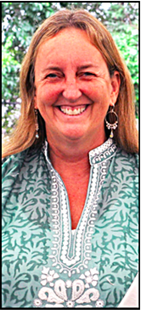 Bonnie Campbell Hill was teacher, literacy leader, reader and writer, and a good friend of CLA. She was also an internationally known educational consultant specializing in literacy instruction and assessment. Bonnie worked extensively with individual schools and school districts, mentoring teachers around the world, and collaborating with them at state, national, and international conferences. Her teaching and writing (including nine books and numerous articles) centered around literature circles, writing instruction, classroom-based assessment, developmental continuums, portfolios, and student-led conferences. Following a cancer diagnosis in 2010, Bonnie dreamed of opportunities to continue her commitment and fierce advocacy for teachers as literacy leaders. That fall, she gathered family, friends, and colleagues to help launch Bonnie's Big Idea, a project that has continued to maintain her literacy legacy. The Bonnie Campbell Hill National Literacy Leader Award is a direct outgrowth of Bonnie's Big Idea. It recognizes two literacy leaders each year, and is generously funded by Dr. Hill's family. Over the past ten years, CLA has been grateful to serve as the home for this award. What does this award mean for you?This award recognizes your role as a literacy leader and provides funding ($2,500 plus $125 in professional materials published by Heinemann) to support your own big literacy-related ideas. We recognize the unprecedented challenges you've faced as a literacy leader, whether in your classroom (virtual and in-person), your school, or even your greater educational community. Now it's time to dream about -- and create -- opportunities that turn your challenges, your questions, your professional needs, even your hopes and dreams into reality. You can do that through a Bonnie Campbell Hill National Literacy Leader Award. What goes into your application? How do you apply?Start with your own big ideas about literacy learning/teaching and professional development. If you were granted $2,500, how could you use that money to support your work as a literacy leader for grades K-8? Your application must include a proposed plan, a budget, your resume or vita, and a letter of support from a supervisor. A professional development proposal could focus on attending a workshop, class, or conference on your own or with colleagues. You might even take advantage of online classes, conferences, and events. Without having to budget for travel, you could create a dynamic proposal with enough funds to support an entire team of colleagues learning together! Perhaps you've always wanted to sponsor a professional book study or you've dreamed of doing some mentoring in your school or community. Now is the time to pursue those plans. Don't worry if your proposal includes events that eventually get cancelled (i.e. attendance at an in-person conference). Go ahead and propose plans as if they will happen. Then, if the event is cancelled, you can use the funds for the following year, or even apply them to a virtual event. In light of ongoing pandemic-related unknowns, we're offering some flexibility in how (and when) you use the award monies. Be creative as you dream up your proposal, but be sure to use the award requirements to prepare your application. These include: membership in both NCTE and CLA and submission of all application materials no later than August 15, 2021. The BCH National Literacy Leader Award application is available here (with further information on the CLA website). If you're unsure whether you and your ideas are award-worthy, you might find it valuable to "meet" some of the prior BCH Award recipients and learn about their proposals. In addition, keep your eyes open for blog post from past recipients in the coming weeks. Feel free to send questions (and eventually your proposal) to Nancy Johnson at njjohnson0303@gmail. Remember, applications are due by August 15th. Nancy J. Johnson is a Professor Emeritus of Children's/Young Adult Literature and English Education at Western Washington University. She is the Bonnie Campbell Hill Award Committee Chair for CLA. BY CYNTHIA ALANIZ AND APRIL BEDFORD, AWARDS COMMITTEE CHAIRSAs we begin the month of March, we wanted to share a reminder about two of the fabulous opportunities available for children’s literature scholars and teachers to apply. Children’s Literature Assembly Research Award
Cynthia Alaniz is a School Librarian at Cottonwood Creek Elementary in Coppell, TX and a CLA board member. April Bedford is is the Dean of the School of Education at Brooklyn College and a CLA board member. She has been involved in CLA for over two decades and considers it her professional home. |
Authors:
|
CLA
About CLA
|
Journal of Children's Literature
Write for JCL
|
ResourcesCLA-sponsored NCTE Position Statements
|
Members-Only Content
CLA Video Library
|
© COPYRIGHT 2018.
ALL RIGHTS RESERVED |

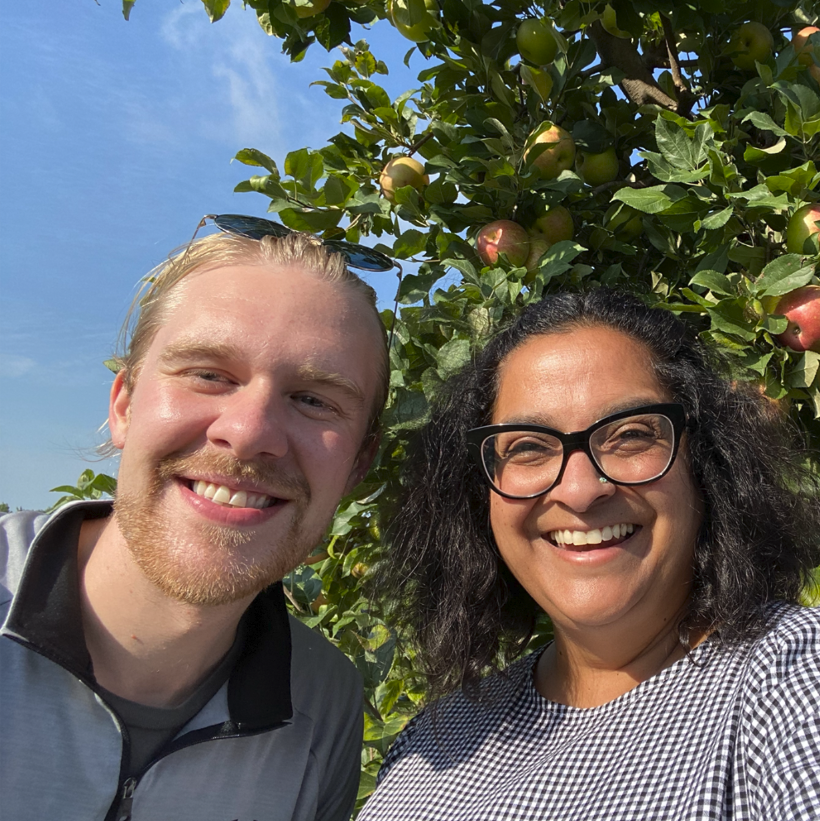
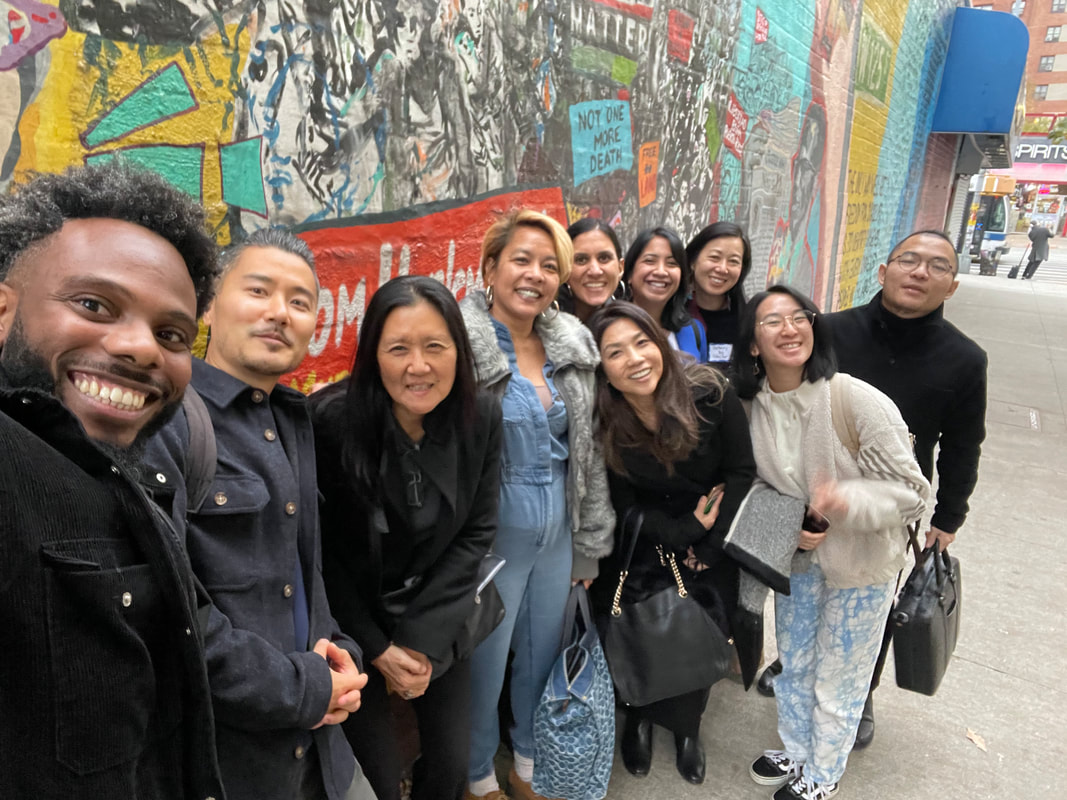
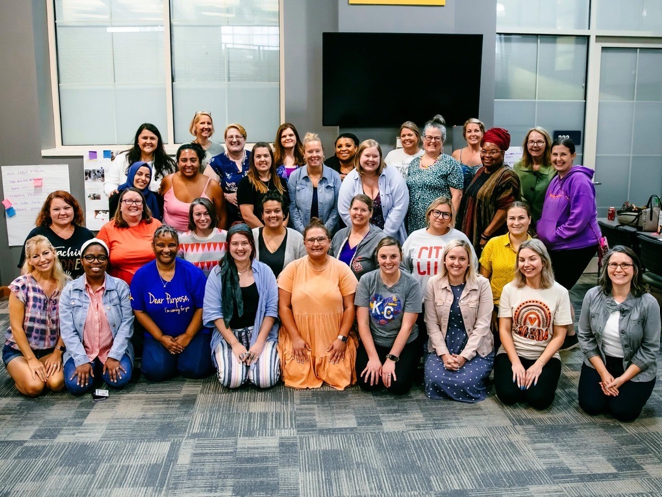
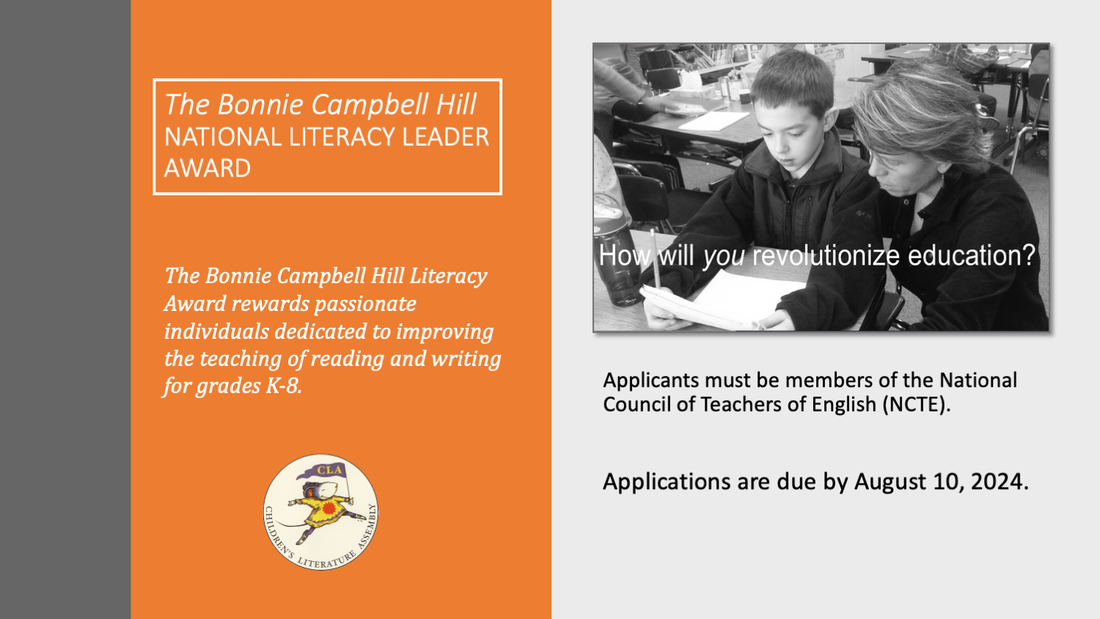
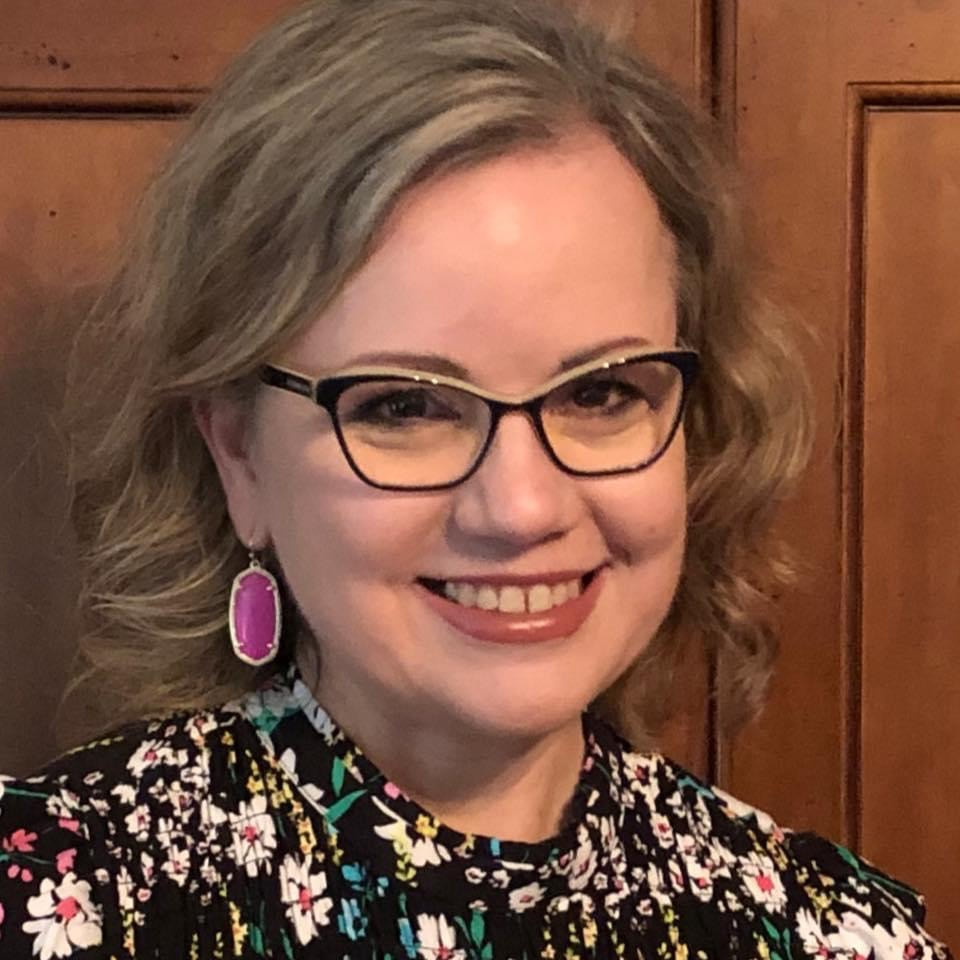
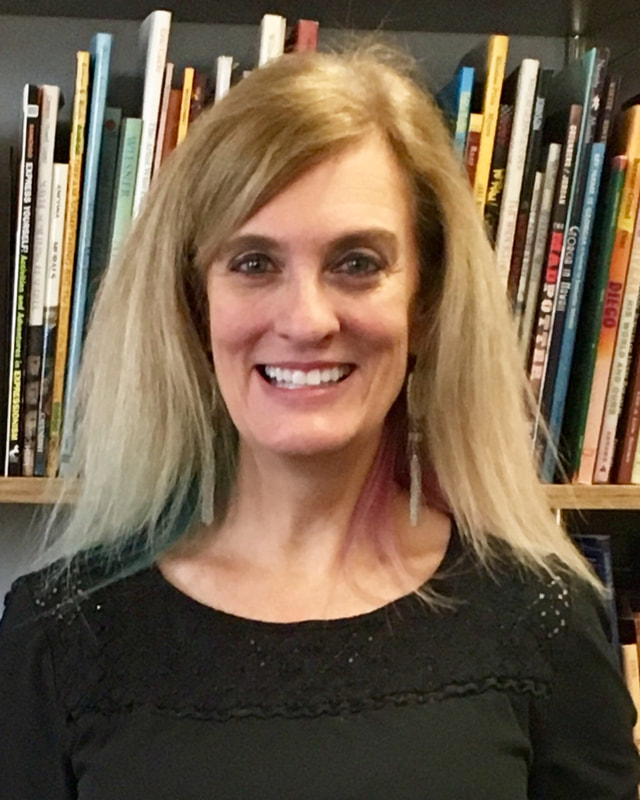
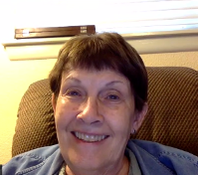
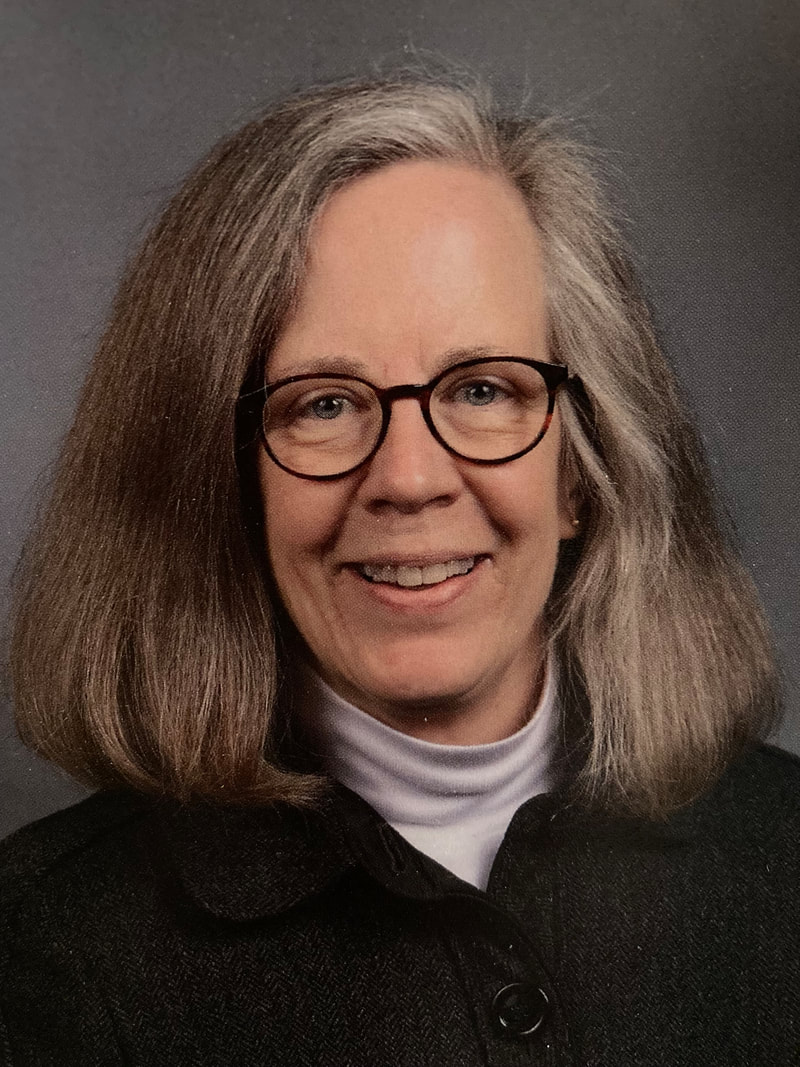
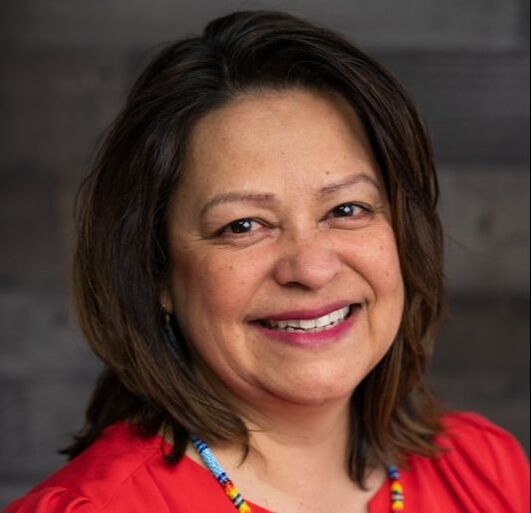
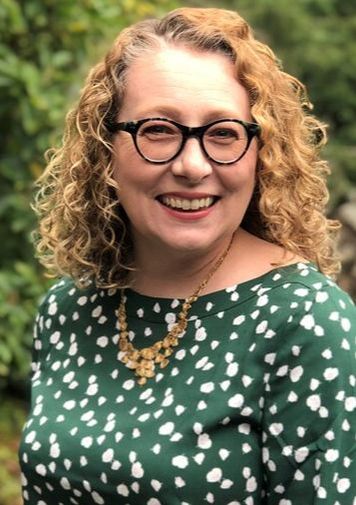
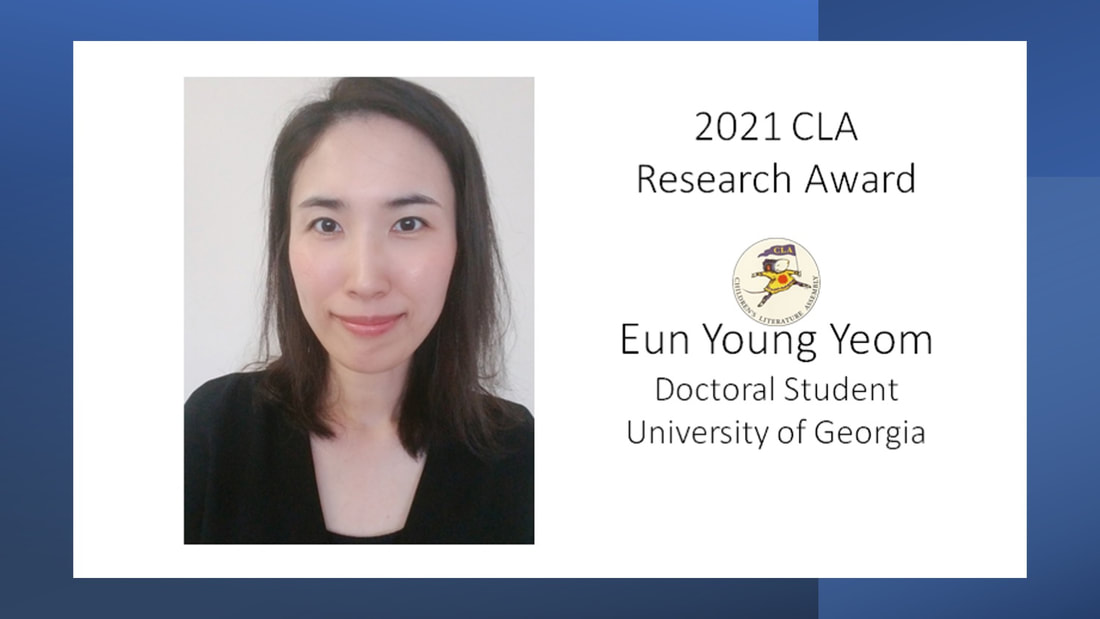
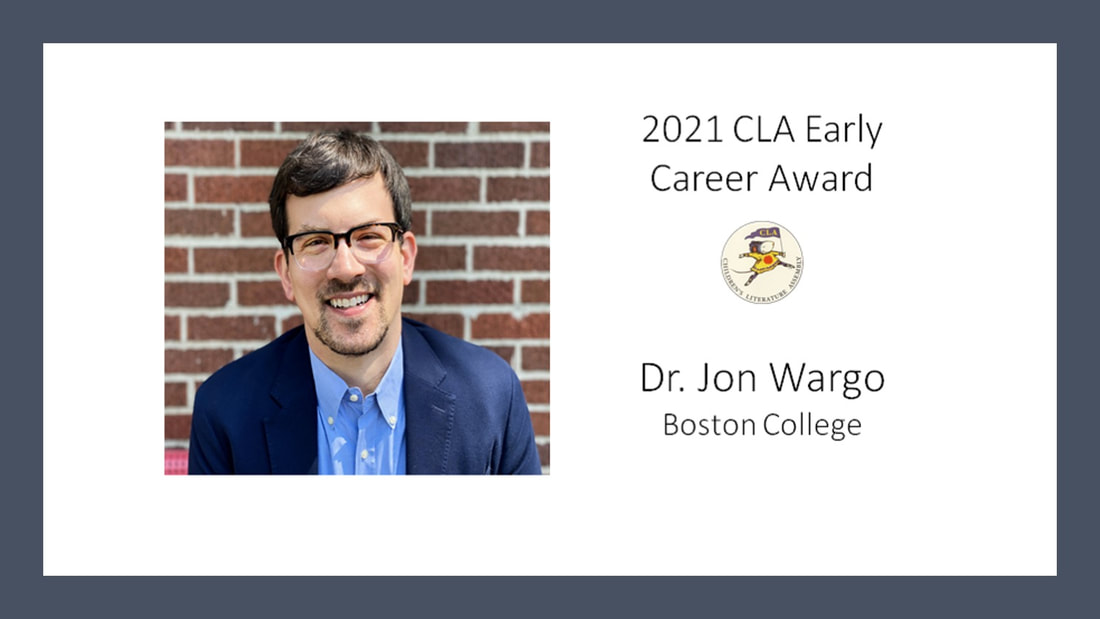
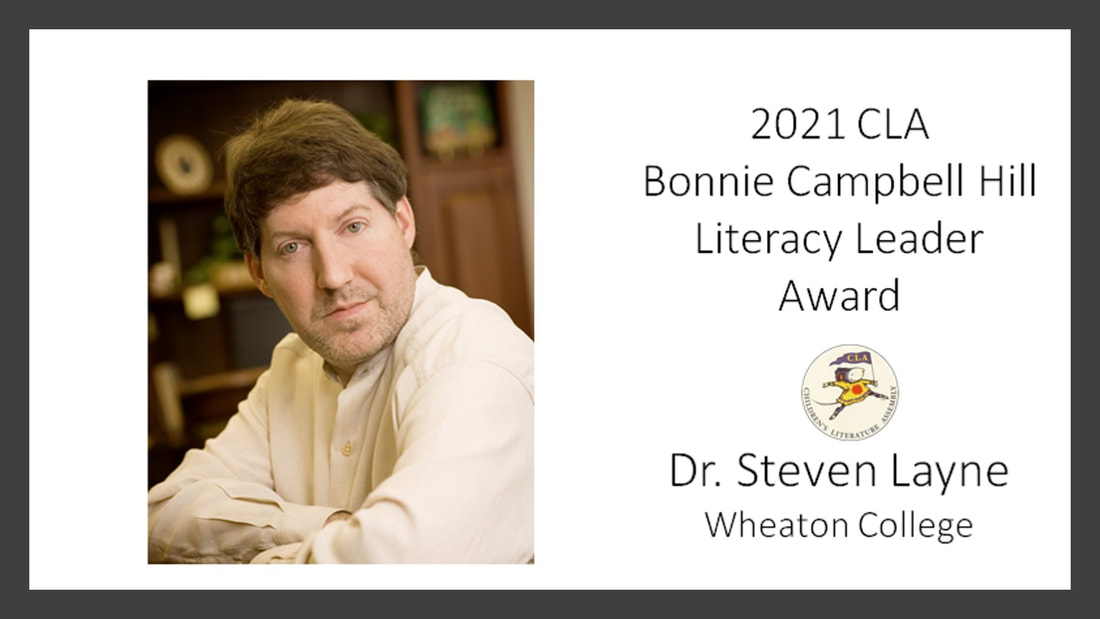
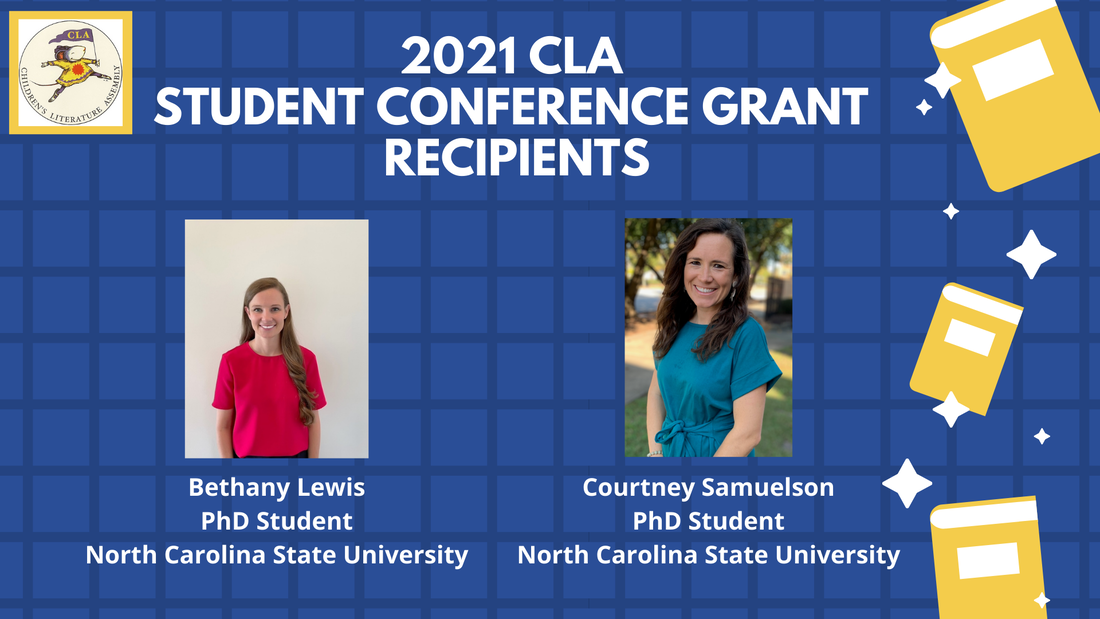
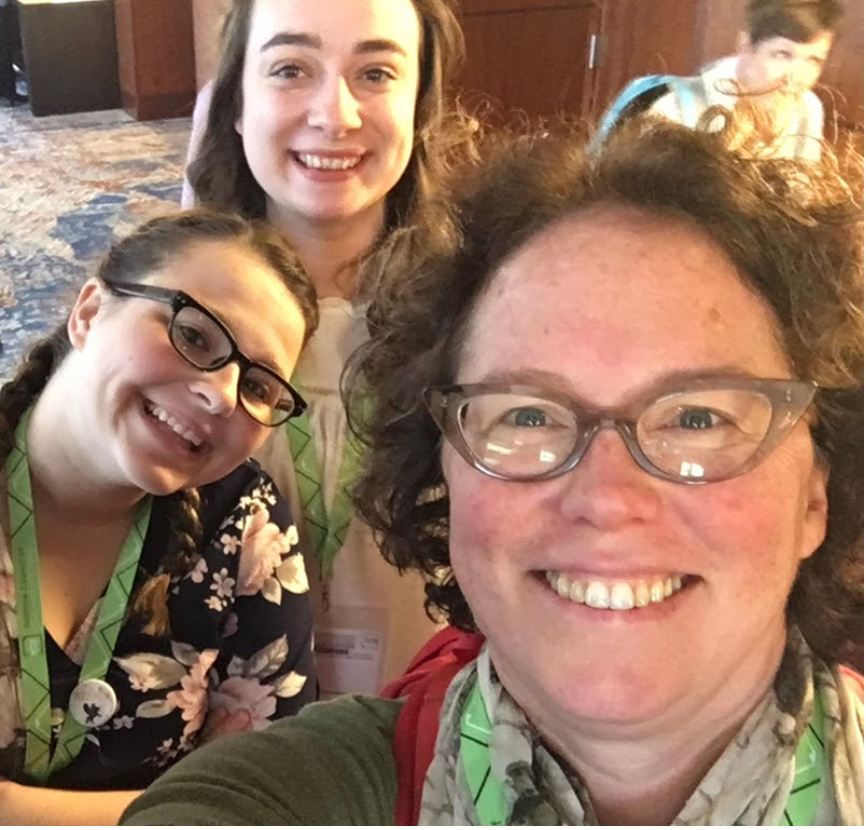
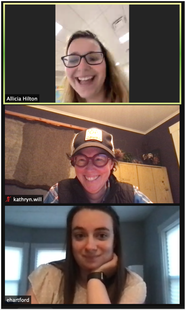
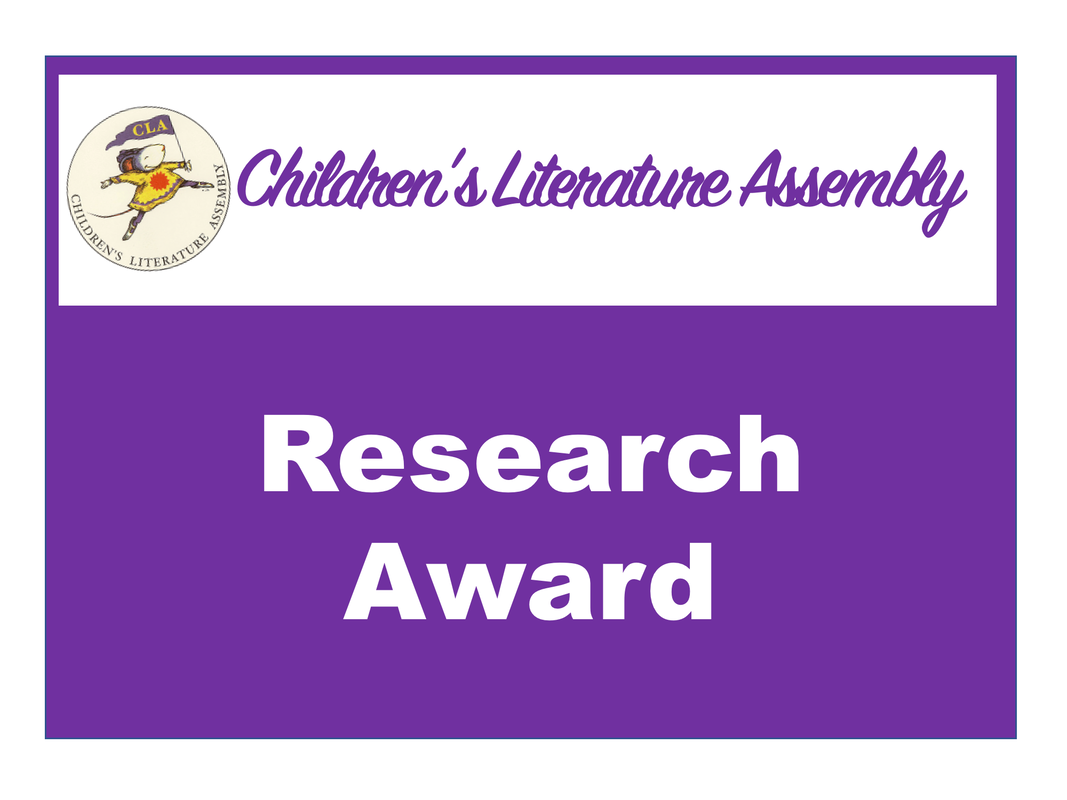
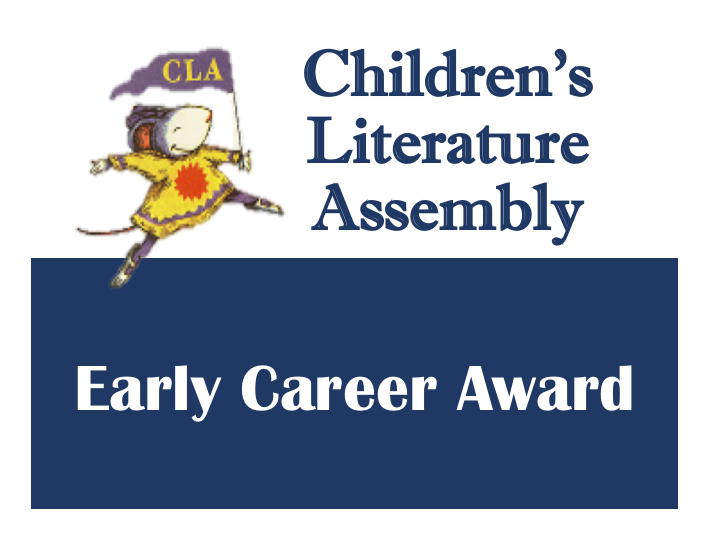
 RSS Feed
RSS Feed